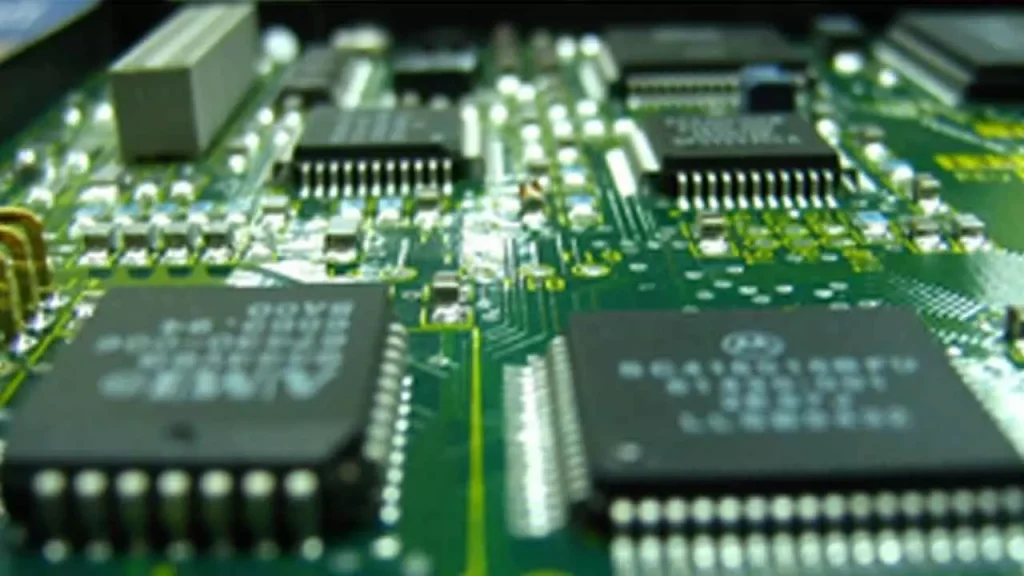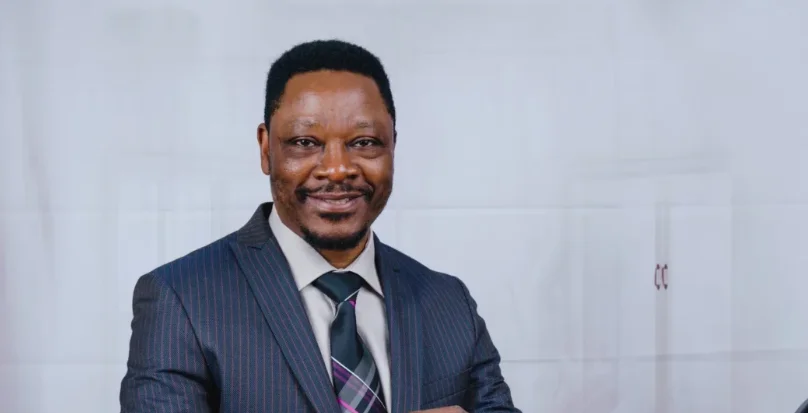U.S. President Donald Trump announced on Sunday that his administration will unveil new tariffs on imported semiconductors within the next week. This move is part of a broader effort to restructure trade in critical technology sectors, especially as tensions between Washington and Beijing continue to escalate.
While Trump hinted that certain companies might receive exemptions, he suggested that earlier exclusions on smartphones and laptops may soon end. “We wanted to uncomplicate it from a lot of other companies, because we want to make our chips and semiconductors and other things in our country,” Trump told reporters aboard Air Force One while returning from his estate in West Palm Beach. When asked whether some electronics like smartphones might still avoid tariffs, he replied, “You have to show a certain flexibility. Nobody should be so rigid.”
National Security Probe Targets Electronics Supply Chain
Trump’s comments followed an earlier announcement that his administration is launching a new national security investigation into the semiconductor industry. In a social media post, he revealed that the probe will cover the entire electronics supply chain.
“We are taking a look at Semiconductors and the WHOLE ELECTRONICS SUPPLY CHAIN in the upcoming National Security Tariff Investigations,” Trump wrote.
This investigation builds on Trump’s broader strategy of leveraging tariffs to pressure foreign nations and bring manufacturing back to the U.S. Just days earlier, the White House had issued a list of exclusions from steep reciprocal tariffs, temporarily sparing key tech products such as smartphones and laptops. That decision raised hopes among industry players that consumer electronics might avoid being caught in the crossfire. However, Trump’s new statements suggest this exemption will be short-lived.
New Duties Coming for Tech and Pharma Products
Commerce Secretary Howard Lutnick provided further details in a Sunday interview, making it clear that the administration is preparing targeted tariffs on semiconductors, smartphones, computers, and pharmaceutical goods. These tariffs, he said, would roll out within the next one to two months and would be separate from the broader reciprocal tariffs already imposed on Chinese goods.
“He’s saying they’re exempt from the reciprocal tariffs, but they’re included in the semiconductor tariffs, which are coming in probably a month or two,” Lutnick explained on ABC’s This Week. He added that the administration plans to introduce “a special focus-type of tariff” on specific technology products.
These new levies are designed to boost domestic production of critical technologies by making it less attractive to rely on foreign—especially Chinese—suppliers.
China Hits Back with Its Own Tariff Hike
On Friday, Beijing retaliated by raising tariffs on U.S. imports to 125%, matching the U.S. tariff rate under the reciprocal measures. Chinese officials, reacting to the White House’s announcement of product exclusions, stated on Sunday that they were still evaluating the impact.
In a statement loaded with metaphor, China’s Ministry of Commerce said, “The bell on a tiger’s neck can only be untied by the person who tied it,” suggesting that only the U.S. can resolve the dispute it has initiated.
Market Volatility and Investor Concerns
Trump’s shifting tariff policies have triggered market turmoil. Wall Street saw some of its most volatile trading days since the 2020 COVID-19 crisis. The S&P 500 index has dropped more than 10% since Trump’s inauguration in January, a sign of growing investor unease.
Prominent investor Bill Ackman, who endorsed Trump’s presidential campaign but has criticized his tariff approach, urged the President to reconsider. Ackman proposed a temporary 90-day pause on Chinese tariffs and suggested lowering them to 10% during that period. He argued that this would allow U.S. companies to begin relocating supply chains without causing immediate economic disruption.
“If he paused Chinese tariffs for 90 days and cut them temporarily, he would achieve the same objective… without the disruption and risk,” Ackman posted on X (formerly Twitter).
Confusion and Criticism Over Tariff Messaging
Market analysts and business leaders have criticized the administration’s inconsistent messaging. Sven Henrich, founder of NorthmanTrader, expressed frustration on social media, writing, “The biggest rally of the year would come on the day Lutnick gets fired.” He urged the administration to take control of its communication, noting that the lack of clarity makes it impossible for businesses to plan effectively.
Democratic Senator Elizabeth Warren echoed these concerns, calling the administration’s tariff policy chaotic and corrupt. “There is no tariff policy—only chaos and corruption,” Warren said during an appearance on ABC’s This Week.
Despite the controversy, the U.S. Customs and Border Protection agency on Friday published a list of product categories temporarily excluded from tariffs. The list includes computers, laptops, memory chips, semiconductor devices, disc drives, and flat-panel displays. However, officials have now made it clear that many of these products will still face tariffs in upcoming rounds.
U.S. Pursues Trade Deals with Non-Chinese Partners
White House trade adviser Peter Navarro said during an interview on NBC’s Meet the Press that the U.S. is actively pursuing negotiations with a number of countries, including the UK, EU, India, Japan, South Korea, Indonesia, and Israel. Notably, China was excluded from this list. Navarro also criticized China’s alleged role in the fentanyl supply chain, further underscoring the administration’s hardline stance.
U.S. Trade Representative Jamieson Greer, speaking on CBS’s Face the Nation, confirmed that there are currently no plans for President Trump to speak with Chinese President Xi Jinping. He blamed China for escalating trade tensions by responding with counter-tariffs. However, he remained hopeful that the U.S. could secure deals with other nations soon.
“My goal is to get meaningful deals before 90 days, and I think we’re going to be there with several countries,” Greer said.
Economic Risks Loom as Recession Fears Grow
Billionaire hedge fund manager Ray Dalio warned that the administration’s tariff strategy could have severe economic consequences. Speaking on Meet the Press, Dalio cautioned that the U.S. may be approaching not just a recession but something even more serious if these trade tensions spiral further.
“We are at a decision-making point and very close to a recession,” Dalio said. “And I’m worried about something worse if this isn’t handled well.”












